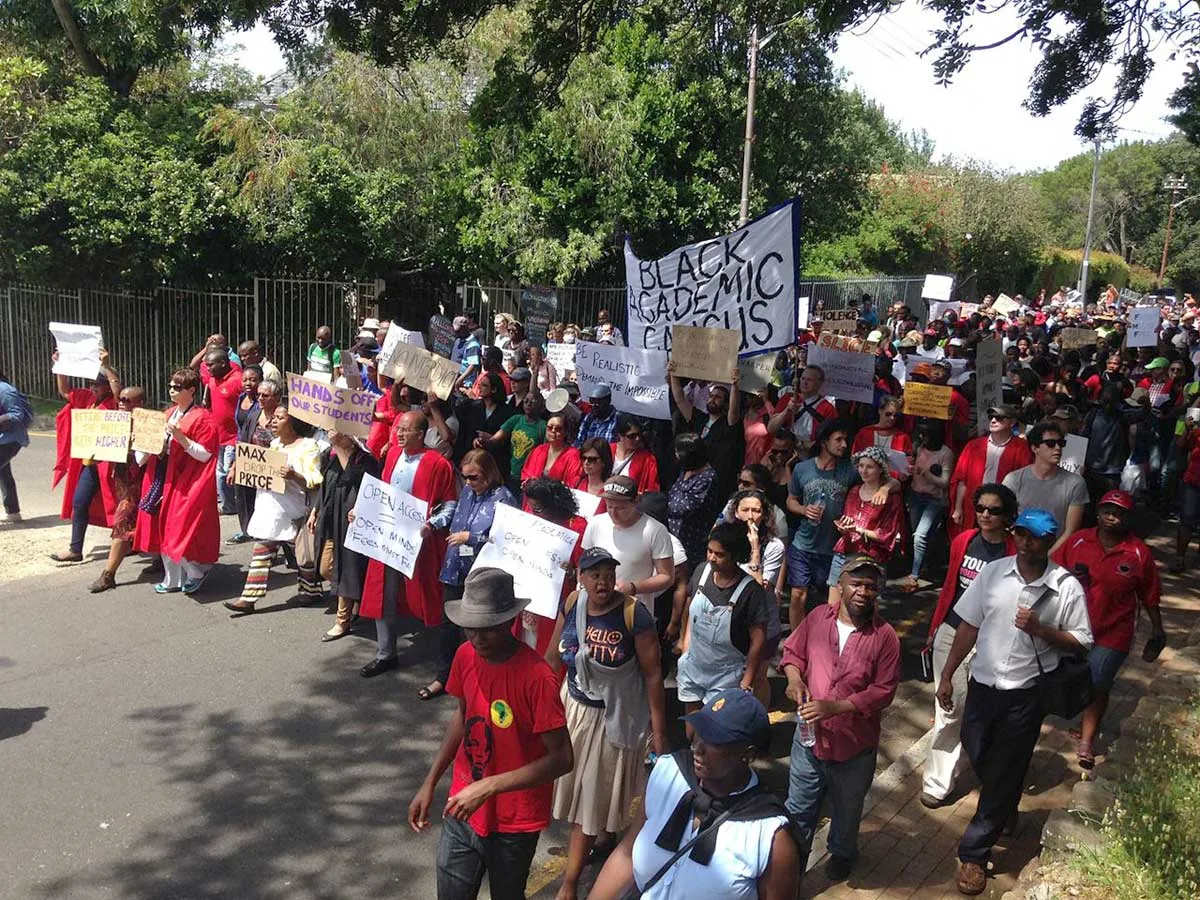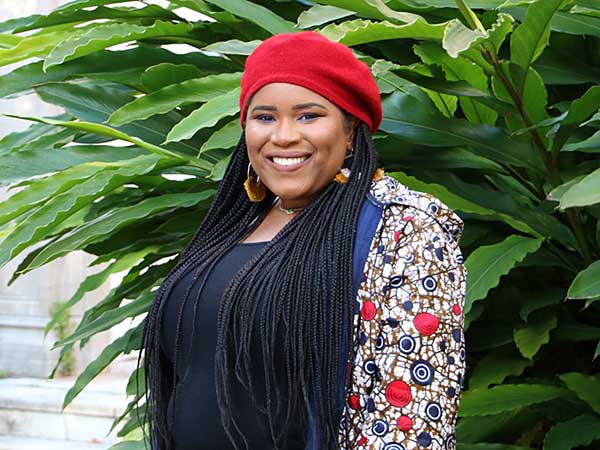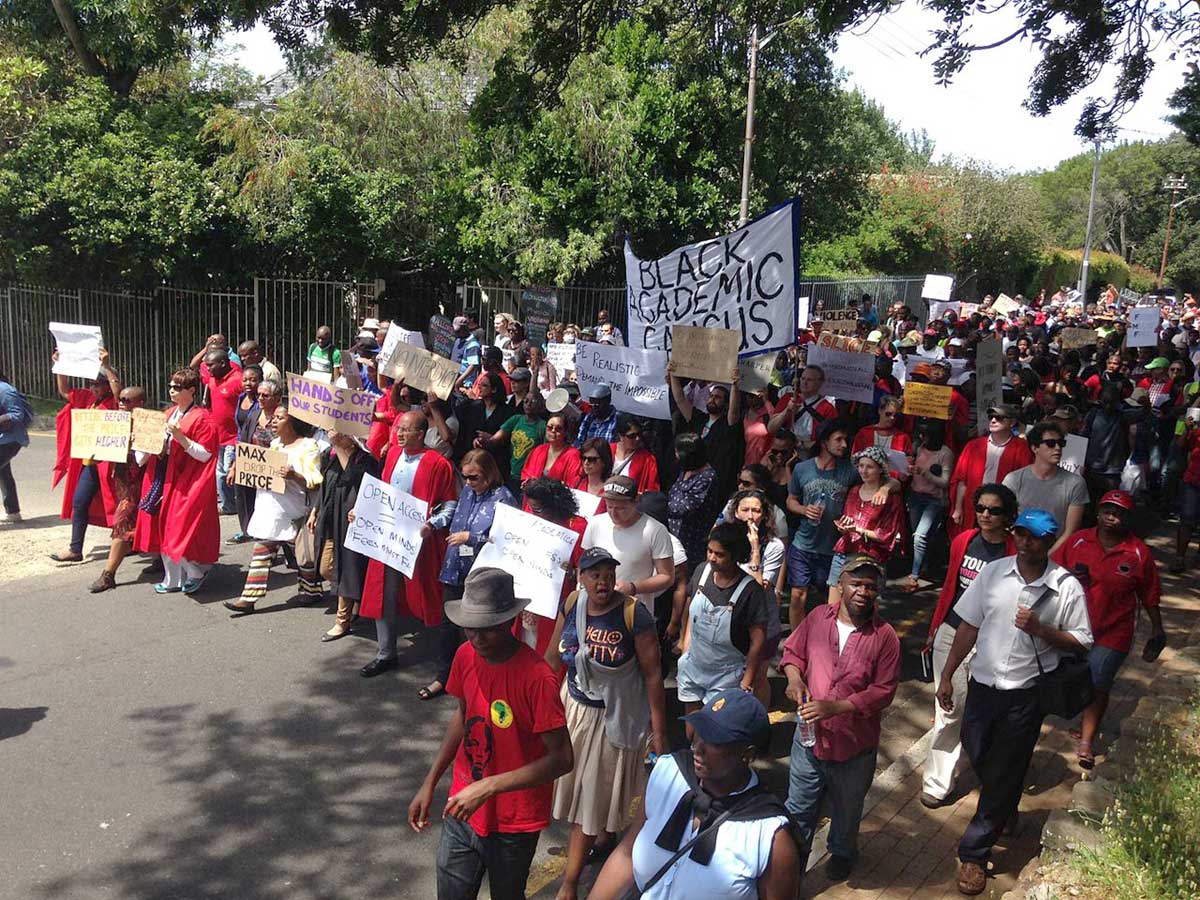

During the spring semester of my first year at Tulane University, I took a comparative politics course that focused on revolutions in the context of Western societies. This course offered insight into the characteristics and mechanisms that constructed a revolution, and it opened my eyes to how my studies could impact my world view. From the start of this course, I began to imagine what would coming revolutions look like? Who would lead them?
Years later, I took a leap in my academic career. After taking courses with Elisabeth McMahon and Z’étoile Imma, professors in the Departments of History and English, respectively, I decided to study abroad at the University of Cape Town (UCT) due to the rich anti-apartheid resistance present in the country before and after 1994. When I arrived on UCT’s campus in January 2019, I could feel a similar atmosphere as when I arrived at Tulane in Fall 2016. In the spring of 2015, students from UCT started nationwide movements to decolonize education with #RhodesMustFall, which organized a collective of students to demand the removal of a statue memorializing British imperialist Cecil Rhodes on their campus. The movement soon spread to the University of Witwatersrand (UWC), which led to the emergence of #FeesMustFall. This movement demanded an end to increasing student fees and pushed for more financial assistance for students. Together, these movements sparked the mobilization of university students across institutions, the streets of the Western and Eastern Cape, and on social media. Students collectively organized to spread awareness of the oppression they faced from colonial and apartheid legacies and assert that education was not a commodity. #RhodesMustFall and #FeesMust- Fall contributed to defining an era of digital activism, which made organizing and advocating accessible to a larger audience and created an international awareness of these issues.
Across the ocean, students at Tulane had ignited their own movement. At the Call for Unity action in 2015, students from organizations such as Tulane’s Black Student Union (tBSU), Generating Excellence Now and Tomorrow in Education (GENTE), Students Organizing Against Racism (SOAR), and the Muslim Student Association (MSA) stood in solidarity with students at the University of Missouri to demand a list of changes to make Tulane a safe and equitable place for marginalized students. Echoing the 1968 requests from African American Congress of Tulane, the tBSU’s list of demands included changes to academic and financial departments and admissions in an effort to increase accessibility and representation. These demands reflected the concerns and realities for marginalized students that faced barriers of not only being admitted to Tulane, but navigating the campus and feeling supported while completing their academic careers. Knowing that they may not experience the benefits that could result from the list of demands, the student organizations were intentional in creating a legacy to alleviate stress for future students. The mission of Tulane and UCT student organizers resembled the reality of organizing, which is obtaining the liberation of all impacted by legacies of oppression. When I studied abroad at UCT, this became even more clear to me.
At UCT, I befriended students who reminded me of my friends and mentors at Tulane. Students who wanted to learn in an environment free of economic and social oppression and marginalization. Students who attended school to break barriers for their families. Students who knew that they could not treat 2015 as a single event, and who knew that change started with them. While at UCT I took an African Political Economy course, which awakened me and my classmates to protest scholarship and challenged us to “ask the right kinds of questions.” The lecturers, tutor, and guest speakers encouraged us to not accept any text or theory as just a body of work; rather, we were empowered to see ourselves as producers of knowledge. In this course, the students and I became comrades working together to imagine and cultivate a revolution needed to decolonize the academic space and allow those who have operated on the margins to have their voices heard.
Since coming back to Tulane in August, I am aware that the next revolution will not fully reflect what I learned as a freshman. Now, I understand that students have the tools, knowledge, and understanding to resist the perpetuation of colonial legacies in academic spaces and to challenge those legacies. As students, we can imagine what it would look like to have a space of learning separate of economic, social, and political oppression. From climate activists to immigration advocates and student action groups like Les Griots Violets, Tulane is entering a new era of students holding their peers, professors, and administrators accountable for the learning environment we cultivate and encourage and the legacy we produce.
After spending much of this spring advocating for financial and housing support from universities as they transitioned into their “new normal” of living through a pandemic, student activists across the nation faced another traumatic moment. On May 25, George Floyd lost his life to police brutality, which was documented in an 8-minute and 46-second video. As Black communities attempted to grieve the deaths of Nina Pop, Breonna Taylor, Ahmaud Arbery, and so many others, Floyd’s death symbolized an accumulation of frustration and exhaustion. The Black Lives Matter Movement, Movement for Black Lives, and BYP100 brought people out of isolation to advocate and demand justice for Black people whose lives have been disregarded due to the productions of racism, capitalism, violence, and exploitation. Joining and leading these movements were student revolutionaries who were equipped with knowledge of care, liberation, and justice that they wanted for their communities. Across the nation, students united to organize around policing presence and practices on their campuses, financial insecurity, and how to free themselves from colonial histories. For many students, this will be a summer that will change their entire lives. It will be a summer during which they have to challenge themselves to reimagine what accountability will look like from institutions to the state. They will have to imagine outside of the confines in which they have been told to exist. They will have to imagine who they want to be and the communities they want to create. In the years to come we must continue to ask ourselves, what does a decolonized education reflect at Tulane? But this responsibility is not just on students. Administrators, faculty, and staff must also ask themselves, how will I respond when I am held accountable? How will I respond when I am asked to reimagine the conditions within the academy?


